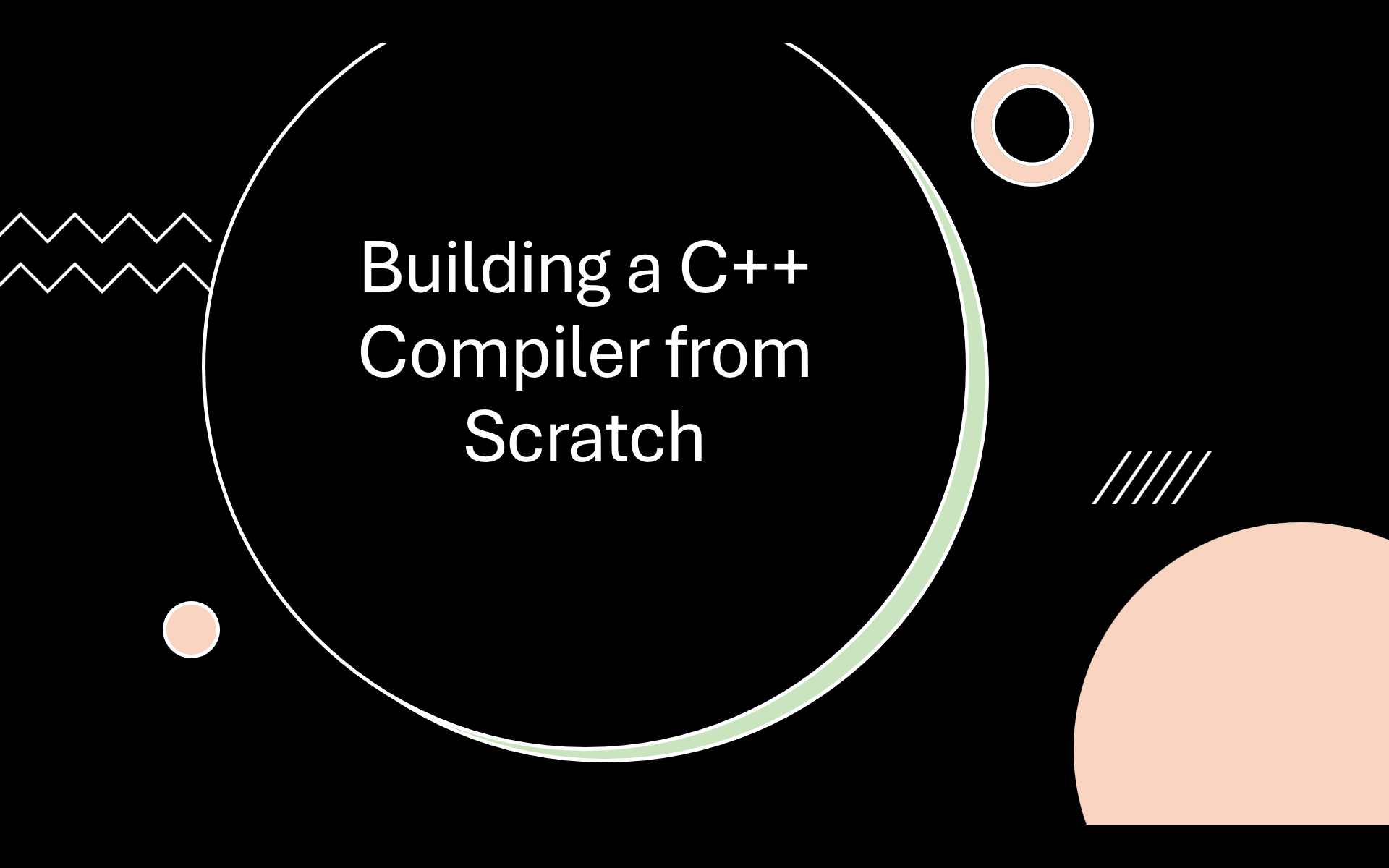For a while now, I’ve been diving deep into C++. Learning the language is one thing, but truly understanding how it works at the lowest level is another challenge entirely. That’s why I’ve decided to take on an ambitious project: building a C++ compiler from scratch.
Why Build a Compiler?
Most programmers use compilers without thinking about how they work. We write C++ code, hit compile, and get an executable. But what happens in between? How does a compiler transform human-readable code into machine instructions?
For me, this is about more than just curiosity. It’s about gaining a deep understanding of language design, parsing, optimization, and code generation. It’s also about proving to myself that I can take on a complex, long-term project.
The Approach
Since building a full C++ compiler is an enormous task, I’m starting small. My plan is to:
- Begin with an interpreter to evaluate basic expressions.
- Move to a minimal compiler that can generate assembly.
- Gradually add features, like variables, functions, and control flow.
- Eventually target modern C++ standards, piece by piece.
I’m taking an old-school approach—no reliance on existing compiler frameworks. I want to do this from scratch, manually implementing each component.
Challenges & Expectations
This won’t be easy. Writing a compiler requires knowledge of:
- Lexical analysis (breaking code into tokens)
- Parsing (understanding the structure of code)
- Code generation (producing executable instructions)
- Assembly language (since I plan to work close to the metal)
I expect this project to take months, if not longer, but that’s fine. The goal isn’t speed—it’s understanding.
Documenting the Journey
Just like my C++ learning journey, I’ll be documenting this experience through blog posts and videos. I’ll cover what I learn, the mistakes I make, and how I overcome challenges.
If you’re interested in compiler design, assembly, or just deep systems programming, follow along. Let’s see how far this project goes.
